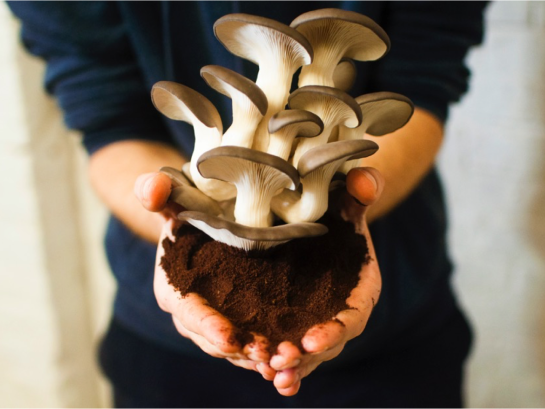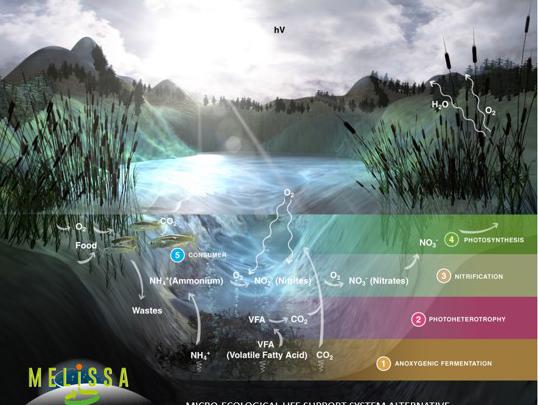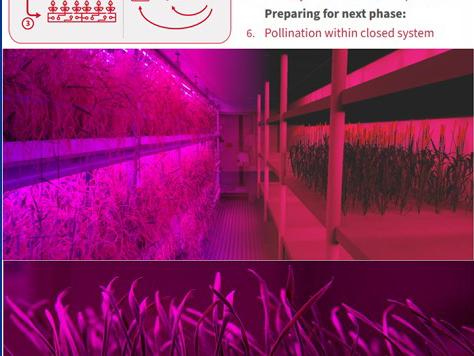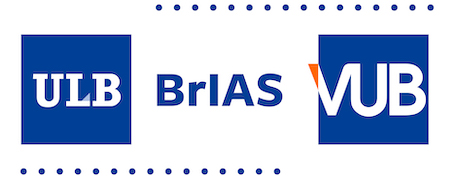
From waste to taste.
Mr. Stijn Roovers COO, Permafungi
Considering the full production cycle of a coffee grain, our daily cup of coffee only possesses 2% of the energetic potential, the rest is thrown away. In Brussels, only a small percentage of coffee waste is recycled, the bulk part ends up being processed as domestic waste. PermaFungi revalorizes the coffee waste using it as a substrate for mushroom production in the caves of Tour & Taxis. The used substrate (champost) is again applied in fruit and vegetable production as a fertilizer. Moreover, a part of our champost is being reused to produce myco-materials. With these materials we aim to replace plastics with a biodegradable alternative in the packaging industry and isolation panels in the construction sector, making us a pioneer of the circular economy.

MELiSSA , a brief history.
Dr. Christophe Lasseur, ESA-ESTEC & Prof. Dr. em. Max Mergeay, Université libre de Bruxelles, MELiSSA Foundation, & SCK CEN
MELiSSA ( Micro Ecological Life Support System Alternative), is an ESA-sponsored project to ensure life support for the inhabitants of long term Space vehicles : essentially production of food (plants and edible microorganisms) in a photosynthetic compartment exposed to space light, of clean water and of oxygen, and recycling as much as possible the CO2 and the waste produced in flight by the crew. The presentation will include the project history since 1987, the description of the major compartments of the MELiSSA loop including a waste treatment by thermophilic microorganisms at 55°C, two compartments to process urine and nitrogenous compounds, a major photosynthetic compartment divided in a bioreactor for the production of edible cyanobacteria and a plant compartment. The total organization of the project by ESA will be described including Science Precursors for Space and Technology Demonstrators for ISS , commercial stations and planetary missions. Special attention will be also given to the POMP (Pool Of MELiSSA PhD) project focusing on the selection of Ph.D. students involved in the MELiSSA project (15 PhD students and 3 Post-Doc fellows up to now). The total bibliography of MELiSSA since 1987 includes 217 publications registrated on the MELiSSA website managed by the IDD-UP communication company. Terrestrial applications of MELiSSA technologies will also be described.

Belgian SpaceBakery – How to make bread on Mars?
Dr. ir. Natalie Leys
Belgian Nuclear Research Center SCK CEN
How we can produce food in hostile environments like future space stations on Mars? How can the first settlers on Mars make and eat bread ? This is the question we tackle with our consortium of 7 Belgian companies and research centers in the SpaceBakery project (www.spacebakery.be). SpaceBakery is developing a closed ecological plant cultivation system and connected bakery that will allow wheat cultivation to make sourdough bread. In addition it is innovating modern agriculture as well as generating insights into sustainable food production on Earth : how to produce safe and nutritious food, via in door farming, independent of soil, climate, and biocides, with minimal nutrient and water use, and maximum waste reuse. This presentation will highlight how we are tackling these challenges in SpaceBakery. More in specific, I will present how the BioSciences research group of the Belgian Nuclear Research Centre SCK CEN is contributing to this development by
(1) monitoring the overall microbial climate in the closed plant cultivation system and its products, to ensure safe operation and guide the selection of a productive biosphere microbiome, (2) testing novel substrates for hydroponic wheat production and the effect of microorganisms on the release of nutrients for optimal plant growth and protection, and (3) investigating the impact of increased ionizing radiation, as is present in space and on Mars, on seed germination, wheat growth and the nutritional value of its grains.
I will illustrate how the SpaceBakery project prioritizes sustainability and provides solutions that will be extremely relevant for space farming tomorrow, and agro-food technology here on Earth today.
